Banksman Training
Quantity: 1

Duration 2 hours
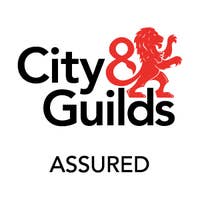


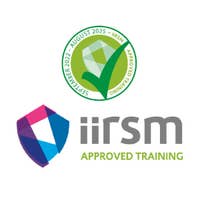

100% online training
Start when you like
Learn on any device (desktop, mobile or tablet)
Instant assessment and result
1 learner per course
Train teams of all sizes
Bulk discounts starting at 10% off 10 courses
Pay by invoice with 30 day payment terms available (5+ courses)
Includes a 10% discount for 10+ courses
This Banksman Training course is an awareness level course that helps learners understand how to fulfil their role of supporting safe vehicle and mobile plant operations. It is suitable for banksmen in a range of industries and for various types of vehicle and mobile plant operations.
The course covers key areas of a banksman's role, including helping to maintain the control measures put in place by their employer, effectively instructing and guiding drivers and operators when other controls are not sufficient for reducing the risks, and keeping the work area free from pedestrians and others who may be harmed. It explains how to use the signals set out in the Health and Safety (Safety Signs and Signals) Regulations 1996, which banksmen commonly use to help direct drivers and operators. Illustrations, videos, and animations are used to teach learners the hand signals, so they can see them in action.
Note that the course is designed to support practical, work activity and work environment specific training that banksmen must receive beyond this course. It can also act as a refresher for those who have already received practical training. This course does not include an ID card.
100% online training
Access anywhere
Same day digital certificate
Printed certificate posted next working day
Full audio voiceover
Assessment retakes at no extra cost
Written in compliance with UK legislation and guidance
Developed by health and safety professionals
City & Guilds Assured
Accredited by CPD, assured by RoSPA Qualification and approved by IIRSM
Bulk discount for orders of 10+ courses

Save on our courses when you buy more training upfront. Lock in a better price now and access the training whenever you need to. You can mix and match any of our courses too and get the discount off your whole order.
10+ courses = 10% off
50+ courses = 20% off
100+ courses = 30% off
500+ courses = 40% off
Upon completion of this Banksman course, learners will understand:

City & Guilds Assured
Thoroughly reviewed independently by City & Guilds learning and development experts, this course is approved as City & Guilds Assured. High Speed Training is the first e-learning provider to have online courses awarded City & Guilds Assured status.

Accredited by CPD
All of our courses are accredited by the CPD Certification Service as conforming to universally accepted Continuing Professional Development (CPD) guidelines.

Assured by RoSPA Qualifications
This course is also assured by the Royal Society for the Prevention of Accidents through their RoSPA Qualifications Assurance System, as providing up-to-date, quality and content-approved training.
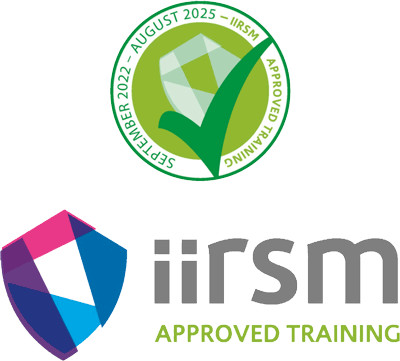
Approved by IIRSM
Additionally, this course has been independently recognised by the International Institute of Risk and Safety Management as meeting the standards of its Training Approval Scheme.
Recommended renewal:
2 years
What does this mean? This certificate does not have an expiry date, however, based on industry best practice guidelines there is a recommended renewal period.
Our in-house Learning Designers develop all of our courses to give you and your learners the most engaging training possible.
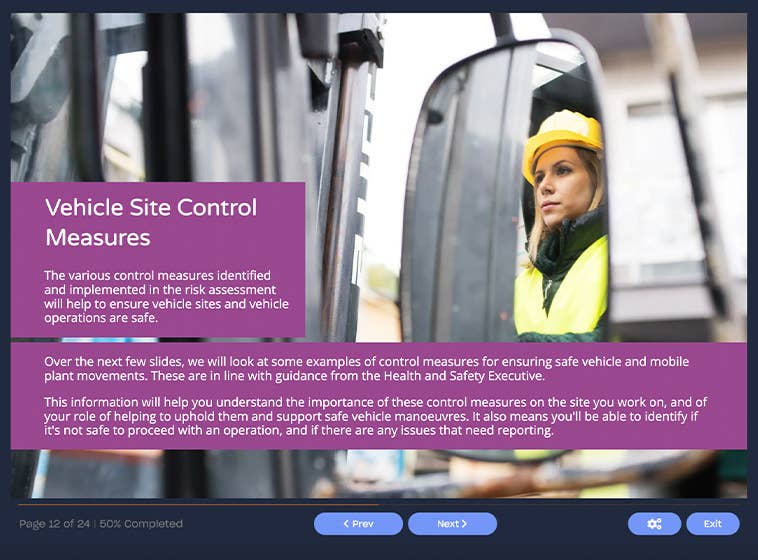
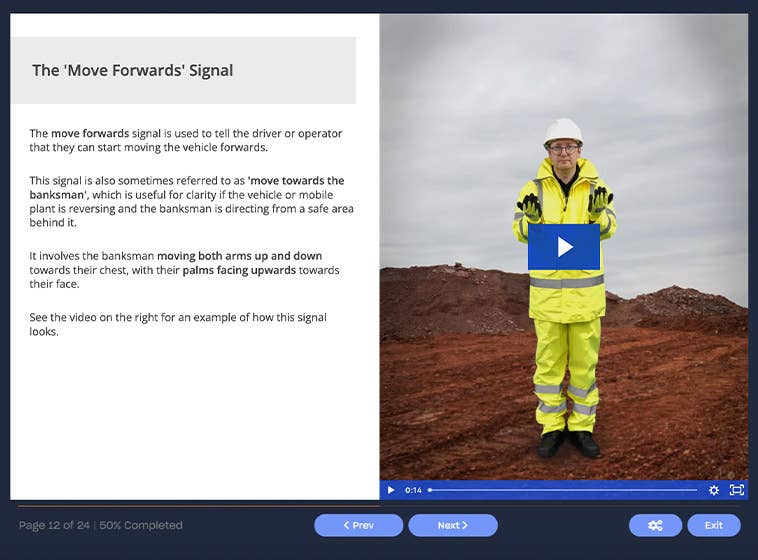
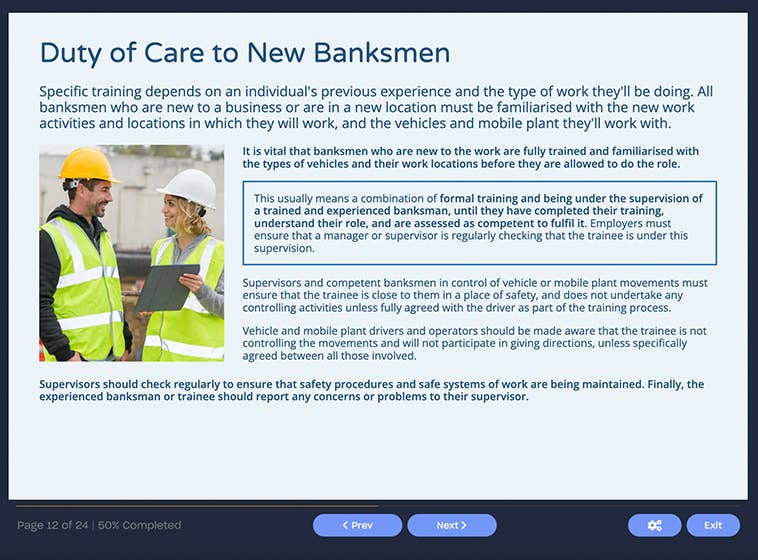
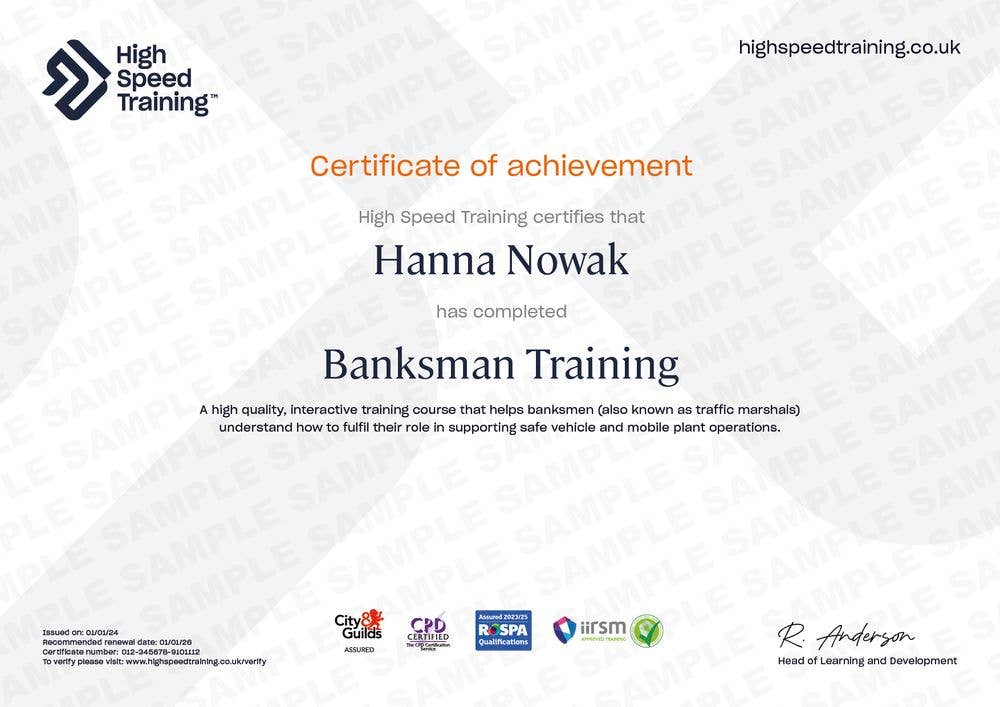




Legal responsibilities, Health and Safety Executive guidance, what is the role of a banksman?, training requirements, and key rules for banksmen when directing vehicles and mobile plant.
Legal responsibilities of employers, risk assessment for vehicles and mobile plant, and vehicle site control measures: traffic routes, temporary traffic routes, pedestrian routes, reversing, traffic calming, speed limits, visibility and lighting, further controls, and safe design.
Why are planning and communications for vehicle movements important?, preparations with drivers and mobile plant operators, how to prepare with the driver, the banksman hand and verbal signals, using the banksman hand signals, and the banksman hand signals in action.
Training in safe systems of work, duty of care to new banksmen, employee competence, use of visibility aids and audible alarms, verbal signals and radio systems, personal protective equipment (PPE), high visibility clothing, protective equipment for the head, and weather protection.
The online assessment is taken on completion of the training material. You will be asked 20 multiple choice questions with a pass mark of 80%. The answers are marked automatically so you will instantly know whether you have passed. If you don't pass don't worry! You can take the test as many times as you need with no extra charge.
Our Banksman Training course is aimed at anyone who'll be fulfilling the role of a banksman for work activities involving vehicles and mobile plant. For example, helping to guide excavators on a construction site, lorries in a lorry park, forwarders in forestry work, etc. It is not specific to any one work environment or type of vehicle or mobile plant, so is suitable for banksmen no matter what industry they work in. The course will help the learner understand what their role entails, including how to effectively and safely guide drivers and operators during manoeuvres using a signalling system.
No previous training is required before undertaking this course, but it is not a replacement for practical training, which is required beyond the course. Practical training is vital for a banksman to be fully competent to fulfil their role in the specific work environment and for the work activities they're involved in. The course can, however, act as a refresher for those who have already received practical training.
To help banksmen understand the wider scope of their role, the course explains what should be covered in the practical training they need to receive for their specific work activities and work environment. With this guidance, they'll know what to expect from further training, or will recognise what their training should have already covered. This in turn will ensure they are as confident and prepared as possible for their role.

In partnership with
Neil Murray
Health and Safety Consultant
Neil Murray is a vastly experienced and highly qualified health and safety professional who has held roles such as Senior Health and Safety Executive inspector, and Principal Inspector for Channel Tunnel construction. He has also held senior roles in an international infrastructure business, a major UK water utility company and a major construction group and provided management consultancy to numerous companies across a wide range of industries.
Neil has a wide expertise in many sectors, including construction, civil engineering, manufacturing engineering, water and waste utilities, education, heritage sites, public safety, rail construction and operation, transport, marine, waste management, engineering design and industrial and facilities management services.
Neil is a QSA auditor for RoSPA and also an author of published guidance on health and safety in the construction of the Channel Tunnel, work at height, major project management, and online training courses.
No, this course is not suitable for slinger-signallers who are involved in lifting and lowering operations, as specific training is needed to fulfil a slinger-signaller role. This specific training is beyond the scope of our course.
The course does not cover normal traffic moving on public roads, because road traffic laws cover traffic safety in more detail than general health and safety law. The course does, however, cover where public roads are used as temporary workplaces. Examples of this would be during roadside deliveries, road works, or breakdown assistance.
No, an ID card is not included with this training course.